RUSTY TALK WITH ULRIKKA S. GERNES, PATRICK FRIESEN & PER BRASK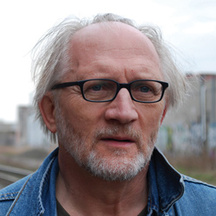 Patrick Friesen is a poet, essayist, playwright and translator living in Victoria, B.C. His most recent publications are jumping in the asylum (2011), a dark boat (2012) and a short history of crazy bone (2015). He has co-translated five volumes of poetry with Per Brask. 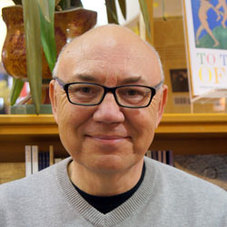 Per Brask is a Professor in the Department of Theatre and Film at the University of Winnipeg where he has taught since 1982. He has published poetry, short stories, drama, translations, interviews and essays in a wide variety of journals and books. This is his fifth volume of poetry co-translated with Patrick Friesen. Danish poet Ulrikka S. Gernes collaborated with Canadian poets Patrick Friesen and Per Brask on their English translation of her Flosset opus for strygere & blæsere (Gyldendal, 2012), the 2016 Griffin Poetry Prize-nominated Frayed Opus for Strings and Wind Instruments (Brick Books, 2015). It is the second book they have worked on together, having previously collaborated on A Sudden Sky (Brick Books, 2001). Gernes is an acclaimed poet in Denmark, where she also manages the estate and artistic legacy of her father, the Constructivist artist Poul Gernes. Friesen, from Steinbach, Manitoba, teaches at the University of Victoria and is also a playwright, as is Brask, who teaches at the University of Winnipeg and has worked extensively in theatre. Brask came to Canada after training as a dramaturg in Denmark. --Rebecca Rustin Rebecca Rustin: While Frayed Opus for Strings and Wind Instruments eschews direct religious references, Per, you made the remarkable decision to convert to Judaism (For love? I was born to the troubled tribe), and you, Patrick, deal head-on with religious themes in your play The Shunning (Scirocco Drama, 2010), about the Mennonite community you grew up in. Ulrikka's second book was Englekløer (Borgen, 1985), the title translated by Per and Patrick as Angel Claws. Per's work is concerned with, among other things, philosophy (Nietzsche, Badiou), Graeco-Roman classics, and mid-twentieth century European politics. It seems that Patrick and Ulrikka ultimately cleave to the pagan--land, sea, animals, the elements--in terms of anchoring the self to the broader world. How does the divine and/or the pagan (to use the term loosely; I might as well just say 'nature') figure into your thinking about the world, and inform your writing/translation practice? How do you use the subject's direct relationship with nature to find your own path through the dominant narratives of the communities you grew up in? Ulrikka S. Gernes: I am not an agnostic and I'm even anxious about using such a word, since I do have a firm belief that ”there's more between heaven and earth than flesh and blood” (line from a poem). As a poet I must never cast my eyes down. I am on the side of the human spirit, the human condition ... I must carry those few drops of water in the palm of my hand through the desert. I once summed it up like this: ”Poetry, in any language, is a language of resistance, resilience, resonance, that speaks from the core and from the rim, from inner and from outer space within the experience of human existence.” One could ask where that thinking comes from? Of course it has to do with the ethics that are fundamental in most world religions and hence are part of our social and cultural ”foundation”, but as Patrick pinpoints it: ”One is a physical and spiritual animal.” I guess that is the point of departure for my work as a poet. Per Bask: When my wife, Carol Matas, and I got together some forty years ago we quickly became aware that we wanted to make a go of it and that our life together would include children. We decided early on that those children would be raised as Jews—and they have been. That meant that I had a lot of catching up to do and I began to study Judaism. The more I got into it the more fascinated I became and eventually I fell in love with the conversation Jews had had down through the ages about life and God and what we humans owe to each other and to God. I wanted to join that conversation as a member. We are not a religiously observant family, but we celebrate Shabbat and we are committed to a spiritual Judaism that is eclectically informed by different denominations. My recent poetry comes from this outlook, this engagement with life. It has also led me to translate the Danish Jewish thinker Andreas Simonsen. Patrick Friesen: A community is many things. Some communities have a basic religious approach to life, though every community has its dissenters, or outliers. I found myself resisting the fundamentalist Christian approach prevalent in my community, and central in my family. While the theological aspect was important, the intrusiveness of those who thought they had a right to probe the state of my soul and to judge it was perhaps the most important part of my resistance. I am interested in both the state of my own spiritual existence and in the social and political aspects of world religions. One is a physical and spiritual animal. I doubt I’m a pagan, though that would be a lovely label to carry. I don’t know if there’s one single word that indicates what I am. Some days I feel I’m an atheist, other days an agnostic, and there are even days where I might come close to some kind of Christian mysticism. But I don’t really know. I do feel that essentially I’m a material being with a spirit, and I have a good sense of what happens to matter after death. What I don’t have a firm grip on is what happens with spirit. RR:I know I said I'd stay away from boring process-y questions, but Patrick, in the interview you recently gave Vancouver's Roundhouse Radio you said something that sounded kind of fun, about the early days of you and Per's collaboration in translating Danish poetry, when he would come sit on your couch and you guys would hammer things out. How does it look when the three of you get together? USG: Our collaboration has unfortunately mostly taken place in cyber space (not many drinks involved) in a rainbow of emails exchanging suggestions, corrections, comments back and forth, and for me it felt like a complete luxury that two wonderful people on the other side of the world would take such care, use their linguistic strength, intelligence and sensitivity—as well as their precious time—to choose and shift around words in poems and stick by them until they fitted hand in glove into the poem. PB: Email with the addition of the telephone has made our work possible since Patrick moved to BC. PF: The three of us never get together physically in order to discuss the translation we’re involved in. Email and telephone is how we communicate. With Per and myself the occasional phone call is essential so that we can hear what we’re doing. RR: When John Weiners, at the time a prodigious drinker of Carling Black Label beer, won a NEA grant, he simply switched to champagne. What's the silliest thing you've ever done with an unexpected windfall? Would you do something silly with the prize if you won? Why is money such a vexed question with regard to the arts? Is money evil? USG: Money? Well, rent has to be paid. Honour doesn't buy breakfast. Money; it's tough when you don't have it. I guess the point is to have enough. Money can do great things and change lives, but money itself doesn't interest me. I know that that sounds arrogant and is a sure sign I'm spoilt silly with the privileges of having been born in a wealthy part of the world, but one must remember: life itself is not long! I am sensible with money (grew up in an artist family with no money) knowing that money—or perhaps a windfall?—can buy freedom to do other things such as writing poetry. There's hardly ever money involved in poetry. Up to now Per and Patrick have basically worked for free. Actually the fee paid for reading at the Griffin is the first real money they get for this book because it is shared between us and that makes me happy (and if we hit the jackpot, naturally that is shared too!). PB: I’ve never had a windfall. Should one happen I can only say: 7 grandchildren PF: People of Mennonite background don’t do silly things, surely everyone knows that. But I think investing a windfall would be quite silly. It’s not something I have to worry about. RR: Patrick's first language was, I think, Low German, Per's was Danish, and Ulrikka, growing up Danish in Sweden, perhaps you learned Swedish, Danish, and English at the same time? How do you all feel about the relationship between English and your mother tongues? Do you wish it were easier to make delicious compound words in English, as you can do in German and Danish? Are there things English can do that Danish can't? USG: Different languages have different advantages and disadvantages. Certain things are more easily, precisely or poetically expressed in Danish than in English and vice versa. There are words ”lacking” in both languages. One language will have an abundance of synonyms while the other has an empty gap in a particular field. For instance the Danish word døgn, which is a word for day and night together, for the full 24 hours, English, curiously, doesn't have a word for that. Translating døgn you have to either choose day or night or say 24 hours and that can completely shift the meaning and feeling in a poem. Danish is my mother tongue, the language I feel the most intimately connected to (spiritually and physically) despite the fact that I am born and grew up in Sweden and speak fluent Swedish. It is interesting that somehow mother tongue and mother's milk are almost synonymous—language is part of the nourishment. However, English was a ticket to the whole world in a sense, allowing me to travel and live in other parts of the world. I have a fairly good command of English, but when it comes to the subtle details, the shades and nuances, the flavors, I depend on Patrick and Per. PB: Those compound words in Danish and in German are usually pretty awful, in my view. English has a much larger vocabulary and I find that endlessly engaging. PF: Compound words are mostly very useful, but in translating you often have to split compound words in half, or possibly in threes, and then you have lost a lot. Perhaps if you’re lucky you’ll find a compound word in English that approximates the Danish compound word, but it’s doubtful. But you might find a word that catches part of the compound word and adds something new to the poem. Suddenly, the poem changes a little bit, and it’s up to the translator to decide if this change in fact helps the poem in its new language without straying too far from the original. RR: What kind of music do you like right now? Anybody ever play an instrument? Smash a guitar onstage? Per, you're a librettist. What a beautiful word. Do you sing? USG: I wish I could sing, or play an instrument! I wish I could express myself without leaving behind a monument to failure ... Music has this ability to push through barriers in the brain and touch us in a direct and immediate way and hence influence emotions, atmosphere, sentiment, we have little defense toward music, and it is also curious how lines from songs or snippets of tunes and melodies can pop up in your heads triggered by an emotion, or a chemical shift in the body. The same way music can put you in different moods. I used to listen to a lot of music, and I still do, and many different types of music, but find that I ”use” music, sometimes as tools to access certain ”moods”, or to get energy, or to get myself out of a certain mood. Music can pour from an open window and completely blow you away ... PB: The Rolling Stones never get old for me. I’ve written two pieces for the composer Michael Matthews, one a piece for actor and cello and the libretto for Matthews’s opera Prince Kaspar. I do not sing. Way back in the mid to late 1960s I played bass guitar in rock and roll bands, eventually dropping the bass and becoming a lead singer (read: screamer). I was never good at either but I love good bass riffs and in my writing and translation it is a bass line that plays in the back of my mind. PF: I like a lot of different kinds of music. I loved the rock ‘n’ roll of the 60s, especially what was coming out of England in the middle of that decade. I particularly love garage-band records, like Shakin’ All Over by Chad Allen & the Expressions, and what used to be called novelty records, like Surfin’ Bird by the Trashmen or Muleskinner Blues by the Fendermen. I loved the wildness in rock, the letting go, the sheer exhilaration and mad laughter. I love all kinds of jazz, people like Bill Evans, and classical music, from Mozart to Arvo Part. I love fado and cante jondo. The list goes on. I can read music and took piano lessons, but I ain’t no player, and I’m no singer either, but music plays a central part in all my work. RR: How do the dramatic scenes encapsulated in each of Ulrikka's poems speak to your, Patrick and Per's, experience in theatre? Have you, Ulrikka, ever been involved in theatre in any way? USG: I've never tried my hands at writing for the theatre, but when writing poetry I often have this ”stage” in mind where something happens, where people interact, or nothing happens and you wonder why. As a child I loved radio plays. Maybe because we didn't have a TV. I think the attraction was that images developed in my head, I was actively involved and that was very engaging. I still love to listen to radio drama when I'm moving around Copenhagen on my bicycle. A Danish actress once told me about an exercise her acting group had done where each actor and actress had picked a book randomly. The task was to act improvisations from the texts they randomly chose. Chance had it that she had picked one of my poetry collections and the whole group was surprised how well my poems had worked ”dramatically”. I wish I had been a fly on the wall there. PB: In addition to that bass line, I need to sense the gesture of a piece before writing or translating. I believe that comes from my theatre training. PF: In addition to the actual theatrical writing I’ve done, I think there’s an element of theatre in some of my poetry; that is, I often have voices in my poems, implied or actual. There’s a lot of conversation in my work, often internal. I think I always look for that conversational motion in other people’s work. RR: Ulrikka and Patrick, you've drawn a distinction, in the Afterword to Frayed Opus and in the Roundhouse interview, respectively, between melancholia (Ulrikka) or the doldrums (Patrick), and depression. It seems as though North American culture overclinicizes things sometimes. Or demands that everyone 'think positive.' Would you expand a bit on the subtleties of negative emotion--the kind that calls for medication versus the kind everyone lives with? Anyone: European versus North American approaches? Is there an equal balance of joy and misery in the world? USG: Patrick suggests reading Lorca and Per points out the importance of visits to the darkness. I absolutely agree! Now, I will be a little bit cheeky and answer your question by guiding your attention to a fantastic painting by Lucas Cranach The Elder because that painting for me sums up melancholia in a beautiful, philosophical and intelligent way. I would prescribe meditating on that painting before taking any medication! We are fortunate to have that painting in the collection of the National Gallery in Denmark so I have seen the original many times and I still go to see it every now and then—when I need a bit of that medicine! PB: That’s Jacob’s struggle, the struggle we all have with life and the divine—whatever we chose to call that. But depression is real, horrible and not recommended. Melancholy thoughts, visits to the darkness, on the other hand are necessary for reevaluation and getting better at life—I think. PF: Ah, yes, much has been medicalized which shouldn’t be. I recently heard that grief is now considered a “disease”. We medicalize, and we categorize, to the point of absurdity. Melancholy is essential I think. As are grief and sorrow and even moments of despair. Experiencing darkness is important simply for living our lives, but it certainly plays a part in the creation of art. A lot of the best work is done in “altered states”. But, of course, it’s always a balancing act, a risky business. One can get lost in darkness, or in an altered state. Venturing there requires a certain amount of courage and the strength and pragmatism to get out. Read Lorca on this subject; his poems but also his essays. His concept of duende is central to his literary output. Frayed Opus for Strings and Wind Instruments |
"Dementia became a metaphor; I began to see the time we’re living in through a lens of dementia." |
Jane Munro: That’s a good question. I remember feeling it was hard to justify spending time on poetry—instead of doing something obviously useful—when there was no external evidence that I was a poet.
As a young mother with three children, I'd go so far as to ask myself, if I weren't me but a young male poet deciding whether to hire a babysitter so he could work on poetry or save his money and spend time with his kids, or some other such choice I found difficult, would I know what to do?
I’d know. It wasn’t always the same answer, but when I called myself a poet and took being a woman out of the equation, I’d know what it was best to do.
Even after I’d published books, being a poet felt different from being someone who composed poetry. I juggled writing time with time for family, earning a living, studying. Did real poets live the kind of life I was living?
At some point, I stopped worrying about whether or not I was a poet.
Perhaps the turning point came when I figured out that my best contribution to the welfare of the whole was to be myself – liver cells didn’t help the body by trying to be bone cells (not that they had such a choice) – and that being oneself wasn’t “selfish” (my mother’s accusation about artists). It also helped to grasp that even DNA is flaky: mathematicians could devise a stronger code.
CG: The first of four sections, “Darkling,” is a sequence of poems numbered one to twelve that seems to counteract a husband’s descent into Alzheimer’s by celebrating the physicality of life with its vivid, precise and sensual imagery: “the glans of a penis, smooth as an acorn,” “The stone that made me think of a full soul / smooth and heavy in my hand,” “A candle guttering.” In the second Darkling, the defiant line “Peeling the grape of death” appears. Your poems are like peeled grapes, more flesh is revealed as one reads them through. Can you tell us about the origin and development of this book?
JM: In a crisis, sealing off vulnerable parts may allow you to do what’s essential. But when it’s not exactly a crisis, even though your reality is a slowly aggregating disaster (such as dementia or what’s happening with climate change), locking yourself into coping mode (being hide-bound) isn’t synonymous with self-protection. But it’s easy to get trapped in the pain of grief.
When I started writing the poems in Blue Sonoma, I had classic responses to pain: anger, self-pity, helplessness, hopelessness. I was even afraid my own life was over.
Making art took heart, mind, body and spirit. Working on the poems made me feel whole. There wasn’t any choice about vulnerability. Peeling the grape of death meant more flesh was revealed.
Dementia became a metaphor; I began to see the time we’re living in through a lens of dementia. If the poems were to provide architecture for the imagination of others, they had to be inhabitable. I didn’t think of them as mine though they came through me and drew on my resources. That’s why I like doing readings: it’s my chance to sense the poem complete its transitive arc; feel others move into it, furnish it with personal stuff.
I don’t know if this answers your question. I wasn’t in any rush to finish the book.
CG: It does answer my question, thanks. In the section “Dream Poems,” dream-reality is reproduced through stark and stirring imagery. These poems are often laced with a post-dream realization such as the last line from “The net of heaven is cast wide”: “He is not a person I knew in life.” Could you tell us more about your relationship with poetry and dreams?
JM: In the iceberg of consciousness, the vaster realm floats beneath the surface of day-to-day thought. Sometimes, I feel that we all share an unconscious reservoir of imagery and story.
While I was writing Blue Sonoma, I was recording dreams. This kept me in a conversation with images from the less-conscious parts of my mind. If I’m right that we share some of this material, then dream imagery might also connect with deeper layers of the reader’s consciousness.
Not every dream comes from that level; some appear to simply recycle a day’s debris. The poems in the second section of the book are records—translations—of specific dreams. Many of the other poems in Blue Sonoma draw on dream imagery, or move as dreams move. Each of them was a mystery. During its gestation, I’d be curious to meet it. For some, that took a long time.
CG: The spare and moving 11-part sequence “Old Man Vacanas” is cutting in its frankness and dark with black humour. The consistency of the voice addressing or observing “the old man’s” struggle with dementia links the poems into a cohesive monologue. How did this section come together for you?
JM: The “Old Man Vacanas” are contemporary approximations of an ancient poetic tradition. In Kannada, a South Indian language, vacana means “saying; thing said.” Vacanas are colloquial prayer poems using natural and domestic imagery to voice—often, complain about—family, village, spiritual, and philosophical issues. Unlike poetry in Sanskrit, they aren’t aureate.
The 12th Century vacanas were prayers addressed to Shiva—or, more precisely, to the poet’s personal deity (Mahadeviyakka calls on “my lord white as jasmine”). In “Old Man Vacanas” the “you” is not identified. I thought of the “you” as the listener.
The poems in this sequence started coming during a snowstorm when we were cut off—the roads impassable. I wrote one after another. This doesn’t happen for me very often, not with that intensity: every time I sat down, another came. I liked them and kept them. Later, others came. I couldn’t tell how long the run would be so played around with it over the next five or six years. Eventually, “Old Man Vacanas” came down to the set of eleven in Blue Sonoma. It was an odd number.
CG: What is the best piece of writing advice you’ve been given that you use?
JM: Write as if you’re already dead. This advice is attributed to Nadine Gordimer, but it reminds me of Krishna’s injunction to Arjuna in the Bhagavad Gita: surrender the fruits of your actions.
Yogis say we have the pleasure of doing our work but no control over its outcomes. That’s the thinking behind Karma Yoga (karma means action).
Yoga practices end with Savasana—corpse pose—during which you let go everywhere, release what you did or didn’t do, drop body and mind into stillness and silence. It’s refreshing and energizing.
CG: What were some of the highlights from your Griffin experience?
JM: Oh, my! It was all extraordinary: reading to over 1000 people—Koerner Hall filled with poetry and their attention; meeting and listening to the other shortlisted poets; the generosity and sincerity of the Griffins: their love for poetry, their vision, their attention to every detail; meeting the illustrious Griffin Trustees and jurors, many of whom I hadn't met before; the recitation by Ayo Akinfenwa (finalist in Poetry in Voice) at the gala; the way everything left me feeling hope for poetry. And, of course, winning: my daughters and friends with me—even distant friends and family watching. A Griffin has wings. I was transported.
CG: What advice would you give to an aspiring poet?
JM: Read and write, read and write, then read some more. Relax; be present; be curious; pay close attention; be patient.
CG: What’s next for Jane Munro?
JM: Writing: settling into my own rhythms and practices and work. That’s the main thing. This fall, thanks to an apartment exchange, I’ll spend a month in Germany. I was in India for two months last fall studying yoga. It’s ages since I had much time in Europe.
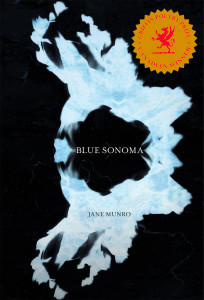 =
= Jane Munro
Brick Books, 2014
Winner of the 2015 Griffin Poetry Prize
A wise and embodied collection of dreamscapes,
sutras and prayer poems from a writer at her peak
In Blue Sonoma, award-winning poet Jane Munro draws on her well-honed talents to address what Eliot called “the gifts reserved for age.” A beloved partner’s crossing into Alzheimer’s is at the heart of this book, and his “battered blue Sonoma” is an evocation of numerous other crossings: between empirical reportage and meditative apprehension, dreaming and wakefulness, Eastern and Western poetic traditions. Rich in both pathos and sharp shards of insight, Munro’s wisdom here is deeply embedded, shot through with moments of wit and candour. In the tradition of Taoist poets like Wang Wei and Po-Chu-i, her sixth and best book opens a wide poetic space, and renders difficult conditions with the lightest of touches.
Grey wood twisted tight
within the framework of the tree –
impossible to snap off,
forged as it dries.
And in me, parts I can’t imagine
myself without – silvering.
~from “The live arbutus carries dead branches…”
Praise for Jane Munro:
“spellbinding … haunting … thoughtful, evocative … arresting images … Zen-like spirituality… ” ~The Toronto Star
Excerpt from Blue Sonoma, Brick Books 2014
In a small boat off Port Renfrew
caught the moon.
It was pale and pocked.
It lengthened from disc to oval to flat fish
as she lifted it. The rod bowed.
When the rod’s tip touched the water’s surface
the moon sprang from the wavesstreaming foam, and soared overhead.
The woman fell on her back –
winded, wordless – rocking as the boat rocked.
The moon hung above her
huge and closer than a star.
It had grown on a tongue of silt
at the river’s mouth, dark-side-down
resting on its mind-reading side,
then slid to deep waters.
Staring up at it, the woman knew it knew.
Rusty Talk
Rusty Talk Editor:
Adèle Barclay
The Rusty Toque interviews published writers, filmmakers, editors, publishers on writing, inspiration, craft, drafting, revision, editing, publishing, and community.
Unless otherwise stated all interviews are conducted by email.
Our goal is to introduce our readers to new voices and to share the insights of published/ produced writers which we hope will encourage and inspire those new to writing.
Archives
November 2017
February 2017
October 2016
September 2016
August 2016
June 2016
May 2016
April 2016
February 2016
January 2016
December 2015
October 2015
August 2015
July 2015
June 2015
March 2015
January 2015
December 2014
September 2014
August 2014
July 2014
May 2014
March 2014
December 2013
November 2013
October 2013
September 2013
May 2013
March 2013
February 2013
December 2012
November 2012
October 2012
September 2012
August 2012
July 2012
June 2012
May 2012
April 2012
March 2012
February 2012
January 2012
December 2011
November 2011
October 2011
September 2011
August 2011
Categories
All
Activist
Adele Barclay
Alex Carey
Alex Leslie
Amelia Gray
Andrew F. Sullivan
Ania Szado
Artist
Author
Bill Bissett
Bob Kerr
Bonnie Bowman
Brian Joseph Davis
Carolyn Smart
Cartoonists
Catherine Graham
Children
Christian Bok
Comedians
Cornelia Hoogland
Daniel Zomparelli
Danis Goulet
David Groulx
David Hickey
David Whitton
Dina Del Bucchia
Directors
Documentary
Editors
Elisabeth Harvor
Elizabeth Bachinsky
Emily Schultz
Erin Moure
Experimental
Fiction Writers
Filmmakers
Francisca Duran
Gary Barwin
Glenn Patterson
Griffin
Griffin Poetry Prize
Heather Birrell
Hoa Nguyen
Iain Macleod
Illustrators
Interview
Ivan E. Coyote
Jacob Mcarthur Mooney
Jacob Wren
Jacqueline Valencia
Jane Munro
Jeffrey St. Jules
Jennifer L. Knox
Julie Bruck
Karen Schindler
Kevin Chong
Laura Clarke
Laurie Gough
Linda Svendsen
Lisa Robertson
Lynne Tillman
Madeleine Thien
Maria Meindl
Marita Dachsel
Matt Lennox
Matt Rader
Media Artists
Michael Longley
Michael Robbins
Michael Turner
Michael Vass
Michael V. Smith
Mike Watt
Mina Shum
Mira Gonzalez
M. NourbeSe Philip
Monty Reid
Musician
Myra Bloom
Nadia Litz
Nonfiction Writers
Novelists
Patrick Friesen
Paul Dutton
Penn Kemp
Per Brask
Performers
Playwright
Poetry
Poets
Priscila Uppal
Producers
Publishers
Rachel Zolf
Ray Hsu
Renuka Jeyapalan
Richard Fulco
Richard Melo
Rick Moody
Robin Richardson
Rob Sheridan
Roddy Doyle
Russell Thornton
Sachiko Murakami
Salgood Sam
Scott Beckett
Screenwriters
Semi Chellas
Sharon Mccartney
Sheila Heti
Short Fiction Writers
Sound Artist
Steve Roden
Tanis Rideout
Tom Cull
Translation
Translators
Travel Writers
Trevor Abes
Tv Writers
Ulrikka S. Gernes
Vanessa Place
Visual Art
Vivieno Caldinelli
Writers
Zachariah Wells

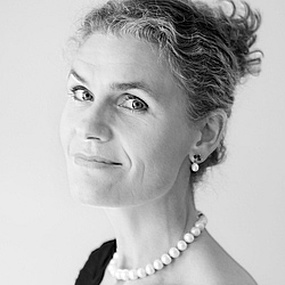
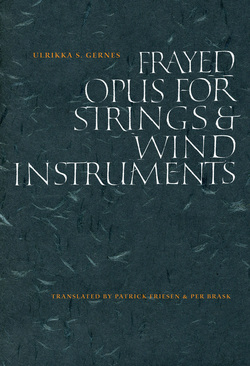
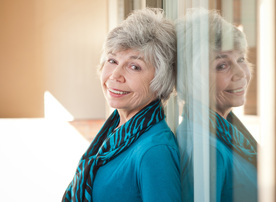
 RSS Feed
RSS Feed
